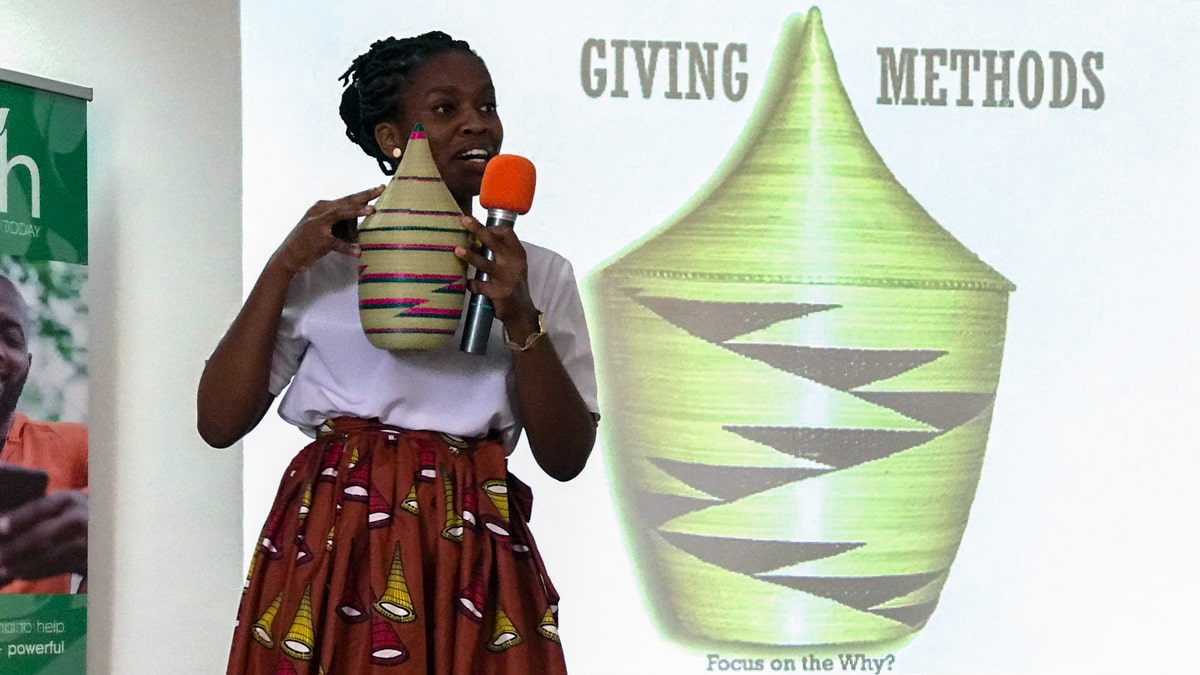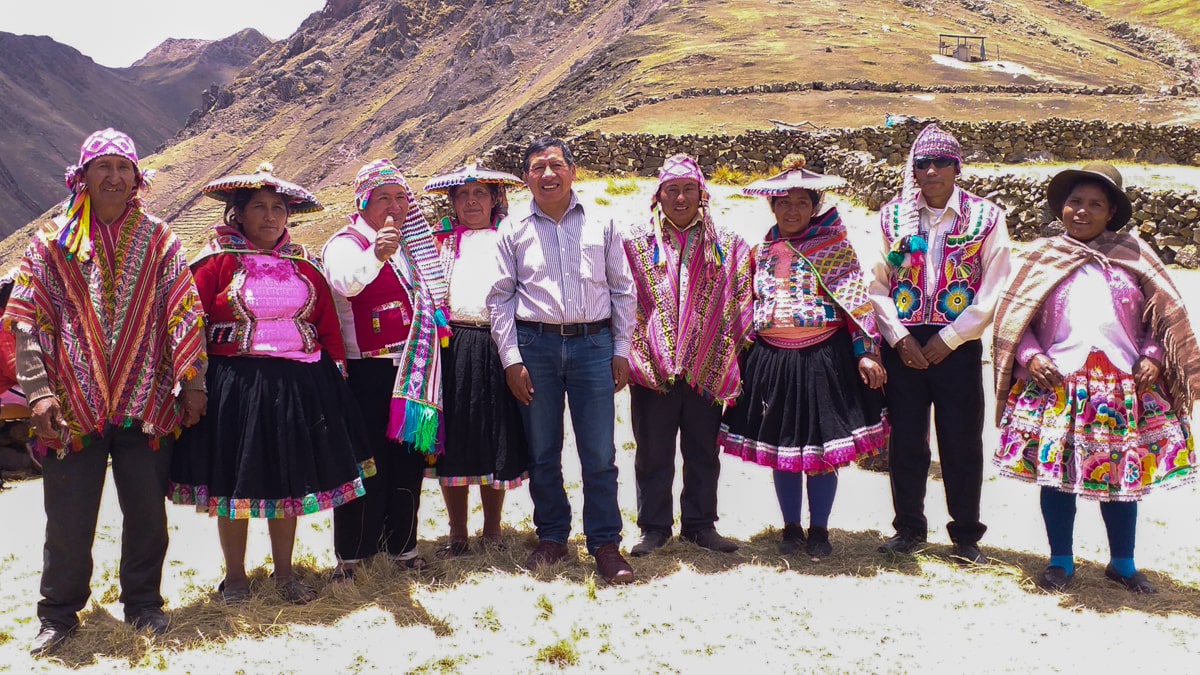
From Emerging as a Trainer to Empowering Pioneers: Christianityworks, AfFEP, and GTP
December 17, 2020
From Lacking Biblical Teaching to Learning about Generosity: Iglesia Evangélica Peruana Santiago, Wycliffe Global Alliance, and GTP
January 28, 2021How the Theology of the Faithful Steward Shapes Our Ministry
“The earth is the Lord’s and everything in it” (Psalm 24:1). God is the owner of every organization and the one who directs its future. We are stewards of the leadership positions we occupy and of the ministries entrusted to our care. This biblical understanding or theology of the steward informs our thinking and drives our practice. It shapes the way we lead and put God’s resources to work.
One aspect of the theology of the steward concerns our faithful administration and governance of churches and organizations. “Now it is required that those who have been given a trust must prove faithful” (1 Corinthians 4:4). The faithfulness of the steward involves knowing and executing the will of the owner. And how do we know the will of God for church and organizational settings? We study His Word.
I was the chief fundraiser for Asian Theological Seminary when it transitioned from American to Filipino leadership in the 1990s. For 16 years, I worked directly with Dr. Isabelo Magalit, the seminary’s first Filipino president. I learned from him that everything I do as a Christian fundraiser and as a manager must have a clear biblical basis. I had to know my Bible!
Who is a faithful steward?
A faithful steward knows the Word of God and aspires to live it out. A faithful steward knows the Creator intimately. As such, he/she strives to carry out His plans and purposes to reflect His design and desire for churches and organizations. Jesus, the model of a perfect steward, says, “For I have come down to do the will of God who sent me, not to do my own will” (John 6:38).
In the Philippines, we understand the meaning and the role of a steward. The word “steward” in Filipino is “katiwala,” which literally means “a trustee.” A trustee manages the affairs of the owner. Since he/she has been given the owner's trust, the steward ensures that he/she carries out his/her responsibilities to please the owner. This role gains greater importance for us as pastors and ministry administrators because we steward God’s mission and Kingdom work, and represent Him before a watching world.
What are the implications of the theology of the steward in our practice?
Whether we are planning, strategizing, implementing, monitoring, or evaluating aspects of ministry, we aim towards faithfulness to God’s Word. The Bible provides the best operational manual for doing ministry. Staying faithful to the Scriptures helps us move from surviving to thriving. It also ensures that our service reflects the values of the Kingdom such as love, justice, integrity, accountability, peace, and the total well-being of the community.
This theology also results in Kingdom building. A faithful steward strives to build the Kingdom of God and consciously avoids building a second kingdom. Fueled by the deceitfulness of human hearts, the second kingdom pursues pride, lust, and worldly desires. To guard against such, the faithful steward seeks peer accountability or makes himself/herself accountable to another. Success has a way of deluding us to self-reliance and independence from God and from others.
Lastly, this theology fosters flourishing in community. God lives in the fellowship of the Trinity: Father, Son, and Holy Spirit. As people created in the image of God, we value relationships and aspire to live in community and harmony with others. Organizationally, we cooperate and coordinate efforts with like-minded ministries. When we do this, we steward God’s resources with greater efficiency and effectiveness by combining our efforts and collaborating as God leads us.
Cómo la teología del mayordomo fiel da forma a nuestro ministerio
“Del Señor es la tierra y todo cuanto hay en ella, el mundo y cuantos lo habitan” (Salmos 24:1). Dios es el dueño de cada organización y el que dirige el futuro de ellas. Nosotros somos mayordomos de las posiciones de liderazgo que ocupamos y de los ministerios que se nos han confiado. Este entendimiento bíblico o teología del mayordomo informa nuestro pensamiento e impulsa nuestra práctica. Da forma a la manera en que lideramos y ponemos a trabajar los recursos de Dios.
Un aspecto de la teología del mayordomo tiene que ver con nuestra fiel administración y gobernación de iglesias y organizaciones. “Ahora bien, a los que reciben un encargo se les exige que demuestren ser dignos de confianza” (1 Corintios 4:2). La fidelidad del mayordomo incluye saber y ejecutar la voluntad del dueño. ¿Y cómo sabemos la voluntad de Dios para la iglesia y los entornos organizacionales? Estudiando Su palabra.
Yo fui la principal recaudadora de fondos para el Seminario Teológico Asiático (Asian Theological Seminary) cuando hizo su transición de liderazgo americano a liderazgo filipino en la década de 1990. Por 16 años, trabajé directamente con el Doctor Isabelo Magalit, el primer presidente filipino del seminario. Aprendí de él que todo lo que hago como un recaudador de fondos cristiano y como gerente debe tener una clara base bíblica. ¡Tenía que conocer la Biblia!
¿Quién es un mayordomo fiel?
Un mayordomo fiel sabe la Palabra de Dios y aspira a vivirla. Un mayordomo fiel conoce íntimamente al Creador. Y así, él/ella se esfuerza por llevar a cabo Sus planes y propósitos para reflejar Su diseño y deseo para iglesias y organizaciones. Jesús, el modelo de un mayordomo perfecto, dice, “Porque he bajado del cielo no para hacer mi voluntad, sino la del que me envió” (Juan 6:38).
En Filipinas, entendemos el significado del papel del mayordomo. La palabra “mayordomo” en filipino es “katiwala”, lo que literalmente significa “fideicomisario”. Un fideicomisario gestiona los asuntos del dueño. Ya que a él/ella se le ha otorgado la confianza del dueño, el mayordomo se asegura que él/ella lleva a cabo sus responsabilidades para agradar al dueño. Este papel gana mayor importancia para nosotros como pastores y administradores del ministerio porque nosotros administramos la misión de Dios y el trabajo del Reino, y lo representamos a Él ante un mundo que observa.
¿Cuáles son las implicaciones de la teología del mayordomo en nuestra práctica?
Ya sea que estemos planeando, elaborando estrategias, implementando, monitoreando o evaluando los aspectos del ministerio, apuntamos hacia la fidelidad a la Palabra de Dios. La Biblia proporciona el mejor manual operacional para hacer ministerio. Mantenerse fiel a las Escrituras nos ayuda a pasar de sobrevivir a ser prósperos. También asegura que nuestro servicio refleje los valores del Reino, como el amor, justicia, integridad, rendición de cuentas, paz y el total bienestar de la comunidad.
Esta teología también resulta en la construcción del Reino. Un mayordomo fiel se esfuerza por construir el Reino de Dios y evita conscientemente el construir un segundo reino. Alimentado por el engaño de los corazones humanos, el segundo reino persigue el orgullo, la codicia y los deseos mundanos. Para protegerse de esto, el fiel mayordomo busca la rendición de cuentas o rinde cuentas ante otro. El éxito tiene una forma de engañarnos para que seamos autosuficientes e independientes de Dios y de los demás.
Por último, esta teología fomenta la prosperidad en comunidad. Dios vive en el compañerismo de la Trinidad: el Padre, el Hijo y el Espíritu Santo. Como seres humanos creados a imagen de Dios, valoramos las relaciones y aspiramos a vivir en comunidad y armonía con los demás. Organizacionalmente, cooperamos y coordinamos esfuerzos con ministerios con ideas afines. Cuando hacemos esto, administramos los recursos de Dios con mayor eficiencia y eficacia al combinar nuestros esfuerzos y al colaborar como Dios nos guía.




